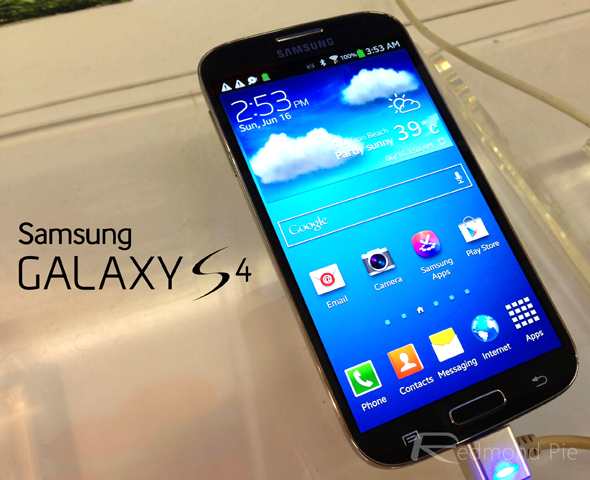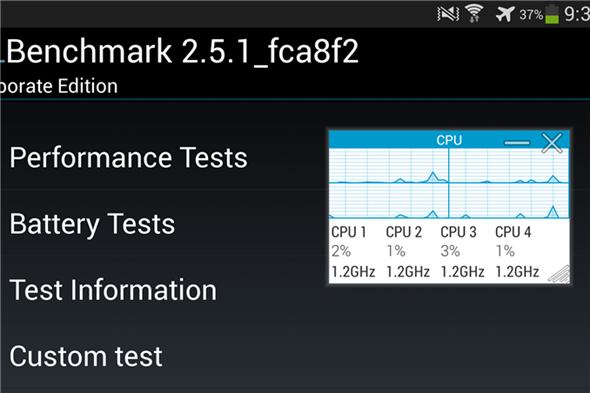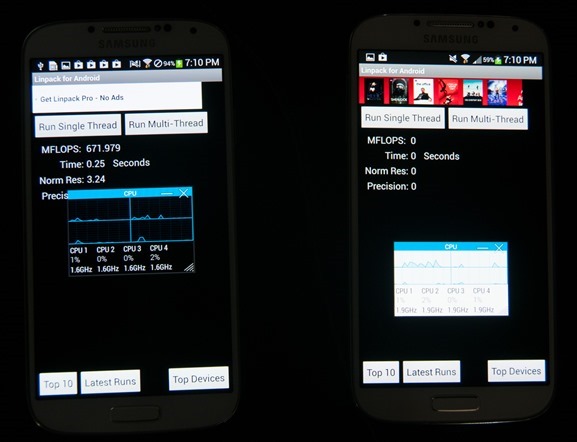As a company, Samsung offers plenty of products for the smartphone world to consider, but while its range is wide and covers most areas of the market, its flagship models derive from the Galaxy S series. One thing you might’ve picked up from every new Galaxy S device, including the Galaxy S4, is that when it comes around to benchmarks, the new model always performs significantly better on paper than its predecessor. This, in terms of digital evolution, perhaps stands to reason, but AnandTech has done a little digging, and discovered evidence that appears to suggest the latest and greatest Samsung Galaxy S4 may have been tweaked to show favorable numbers in the benchmark tests, even if this doesn’t necessarily translate to real-world performance improvements.
Now, we know that there are limitations on how much a smartphone can offer year-in, year-out, and with each new model of smartphone, vendors are finding it very hard to trump the preceding device for features and specs.

It has been claimed that the Galaxy S 4 saves its fastest graphics chip speeds for specific benchmarking apps, while games and apps see much less impressive performance from the company’s Exynos 5 Octa-core processor. The SoC, which is only found in certain variants of the Galaxy S4, sounds very impressive on paper, and the benchmark figures have done its credibility no harm whatsoever. Yet back in the real world, it would seem that apps don’t enjoy the same kinds of power, and although it would make sense for Samsung to want to reflect its poster child in as positive a light as possible, this would seem a pretty underhanded way ensuring so.

Beyond3D users were first to pick up on the inconsistencies, with the Galaxy 4’s GPU clocked at up to 533MHz on some benchmarking apps. Yet, over time, it was shown that the graphics chip ran at around 480MHz, which I think you’ll agree, is more than a slight discrepancy.

The same kind of behavior has also been shown with the CPU benchmarks and real-world usage, not only for the Exynos 5 model, but also the Qualcomm Snapdragon iteration.

Tailoring the numbers to show something is when it, in fact, isn’t, is not the kind of behavior we would expect from a company of Samsung’s stature. The Korean outfit has yet to comment on the situation, but one suspects an uproar on the subject is nigh.
Thoughts?
(Source: AnandTech)
You may also like to check out:
You can follow us on Twitter, add us to your circle on Google+ or like our Facebook page to keep yourself updated on all the latest from Microsoft, Google, Apple and the Web.

